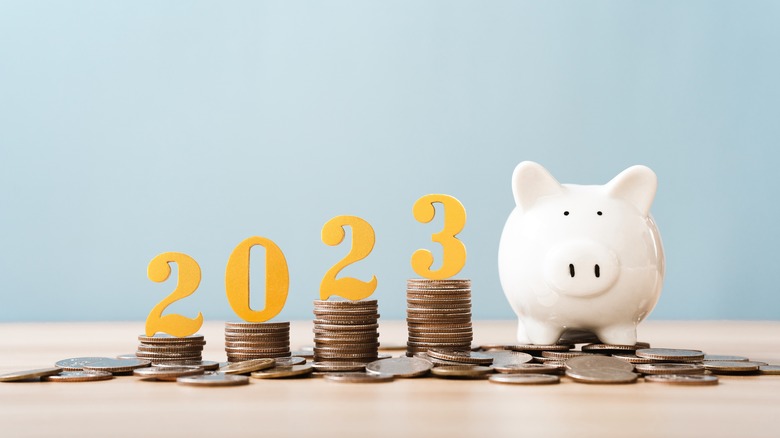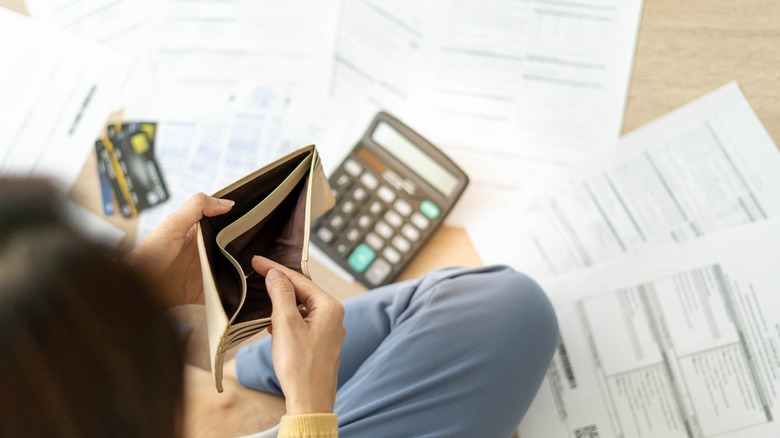Everything You Need To Know About Lifestyle Creep (And How To Take The Guilt Out Of It)
Managing our finances is one of the most mystifying areas of modern life, and a 2022 study funded by Credit Karma surveying 1038 Americans over 18 showed that 61% of Gen Z survey-takers are learning more financial literacy from the internet than their parents, schools, and other resources. The most confusing obstacles included investing in the stock market, according to 37% of all respondents, and cryptocurrency, according to 33%, while saving for retirement had 25% feeling lost, and taxes stooped another 22%. Perhaps most tellingly, only 36% of all those surveyed expressed confidence in their current money management.
Your relationships might include some financial imbalance, so if you get a raise or switch to a more high-paying job, you may want to impress your partner or social circle by making quantifiable lifestyle changes. Income inequality in a romantic relationship can make for some uncomfortable realities, but foregoing a fancy dinner when you're saving to pay off a credit card or begging off of an expensive trip may not be habits we should give up as soon as our income increases.
Whether it's budgeting to celebrate Valentine's Day or figuring out how much money should be in your emergency fund, it can be easy to fall victim to lifestyle creeping — also known as lifestyle inflation — when we start seeing more money in our bank accounts. What's important is what happens after we catch our spending creeping up on us.
Savings may be your litmus test
If you find yourself making more money but not gaining more financially security, TikTok's "financial cleanse" trend may be a way to reassess your spending habits while making practical plans for how to proceed. The app's accessible nature and user-friendly explanations of financial planning break down barriers around budgeting without making users feel alone or embarrassed about what they don't know. And taking the time to reevaluate your spending may help you realize that you've confused necessities with wants, and remember that improving your quality of life is not necessarily dependent on adding to your spending.
Though it can be a self-esteem booster to see our credit card limits increase, Investopedia warns against seeing it as an invitation to spend more, since increasing the percent of monthly credit you use can negatively impact your credit in the long term. It's also important to remember that the more money you make, the more money you should be saving — Kimberley Palmer from Nerd Wallet recommended to Real Simple that we put away three to six months of income as emergency savings.
Robin Aiken, Principal at Homrich Berg Wealth Management, also told Business Insider, "If the amount you are saving has remained static even after a few years of raises and bonuses at work, that is a sign that you are spending all of the extra money you are making each year." Your savings may be the first indicator that you are letting your lifestyle expenses creep up on you.
Lifestyle creeping affects us in different ways
NPR consulted financial planner Paco de Leon on lifestyle creeping, and she noted that the "hedonic treadmill" — or equating new purchases to attaining personal happiness — only ushers us into a repetitive spending cycle. She also shared, "How we choose to spend or not spend our money is a reflection of how we feel about ourselves."
Of course, it feels inevitable that sometimes we will spend money in order to feel better about ourselves. Financial planner Katie Waters shared with Real Simple that in terms of big purchases, "None of [these luxuries] are forbidden or gluttonous on their own." However, she added, "The creep lies in mandating that you have all of them: the house, the cars, the travel budget, the kitchen/backyard/basement/bathroom remodel, the private schools."
But lifestyle creeping is not a problem isolated to a certain income level or population, and anyone can struggle to put away emergency funds or cap their credit card spending. Kate Rose Bee tweeted, "People almost never talk about how 'lifestyle creep' when you begin to make more money is not so much spending on luxuries, but rather all the life maintenance things you couldn't tend to before that end up being really expensive, like dental work or car repairs." She also wrote, "Just because you can technically live without something doesn't mean it wasn't essential."
Taking the guilt out of lifestyle creeping ultimately means preserving your financial freedom when possible — like paying down credit card debt and putting away emergency funds — while continuing to prioritize your wellbeing.


